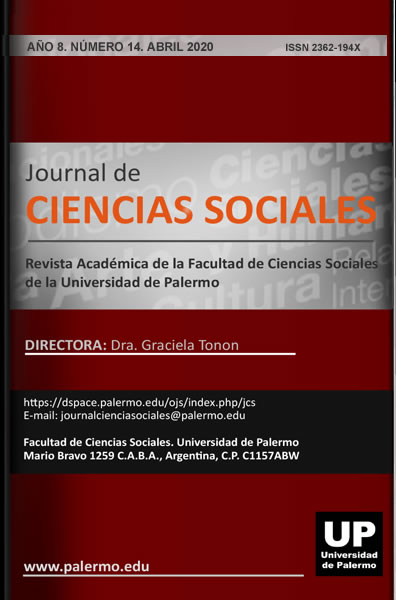Theoretical and Methodological Approaches around the Sexual Trade with Infants and Adolescents in Girardot, Cundinamarca
Abstract
This essay, product of documentary research entitled “Dynamics of sexual trade with children and teenagers in Girardot, Cundinamarca, Colombia”, sets out the issue about sex trade with children and teenagers as a social problem that affects Colombia and different countries where tourism is a relevant sector of the economy. This article proposes a theorization on the problem around three axes as explanatory categories of child prostitution: family, information society and consumer culture, which define the entry to the prostitution. Likewise, it is detailed several legal instruments existing in Colombia, from Colombian Constitution until Penal Code, and many other laws and international conventions legally binding destined to protect children and teenagers, demonstraiting that sexual trade shows up despite legal guarantee. Finally, it also proposes a methodological approach of qualitative type -not put into practice-, which may be useful for future investigations that wish to carry out fieldwork and corroborate the hypotheses from the proposed variables.
Downloads
References
Ander-Egg, E. (2003). Métodos y técnicas de investigación social. Vol. IV. Buenos Aires: Lumen.
Castells, M. (1999). La era de la información. Vol. I. Madrid: Siglo Veintiuno Editores.
Eco, U. (1976). Tratado de Semiótica General. Barcelona: Lumen.
Eco, U. (1987). Para una guerrilla semiológica, Recuperado de http://omegalfa.es/downloadfile.php?file=libros/para-una-guerrilla-semiologica.pdf
Eroles, C. (2001). Familia y trabajo social. En C. Eroles (coord.), Familia y trabajo social: un enfoque clínico e interdisciplinario de la intervención profesional. Buenos Aires: Espacio Editorial.
Flick, U. (2004). Introducción a la investigación cualitativa. Madrid: Morata.
Martín, O. (2000). La educación sexual y afectiva de la familia. En A. Artola, y R. Piezzi, (coords.), La familia en la sociedad pluralista. Buenos Aires: Espacio Editorial.
Max-Neef, M., Elizalde, A. y Hopenhayn, M. (1993). Desarrollo a escala humana: conceptos, aplicaciones y algunas reflexiones. Montevideo: Editorial Nordan-Comunidad.
Ocampo, J. A. y Martin, J. (2003). Globalización y desarrollo. Una reflexión desde América Latina y el Caribe. Bogotá: CEPAL/Alfaomega.
Ribeiro, M. (2000). Familia y política social. Buenos Aires: Lumen.
Rubio, J. (1978). Antropología filosófica. Bogotá: Usta.
Salazar, R. J (1993). Antropología, perspectiva latinoamericana. Bogotá: Usta.
Sartori, G. (2012). La Política: lógica y método en las ciencias sociales. Buenos Aires: Fondo de Cultura Económica.
Sen, A. (1998). Las teorías del desarrollo a principios del siglo XXI. Cuadernos de Economía, 15(29), segundo semestre73-100.
Sen, A. (1998). Capital humano y capacidad humana. Cuadernos de Economía, 17(29), 67-72.
Cibergrafía
Congreso de la República (2018), Código Penal Colombiano. Recuperado de http://perso.unifr.ch/derechopenal/assets/files/legislacion/l_20130808_01.pdf.
Combatiendo al turismo sexual con niños y adolescentes, preguntas frecuentes. Recuperado de http://www.ecpat.net/sites/default/files/cst_faq_spa.pdf.
Europeans involved in Gambian child sex tourism. Recuperado de http://www.afrol.com/html/News2003/gam001_sex_tourism.htm.
Unicef, Convención Internacional Sobre los Derechos del Niño. Recuperado de https://www.unicef.es/sites/www.unicef.es/files/CDN_06.pdf.
Unicef (2017). Informe Anual UNICEF Colombia 2017. Recuperado de https://www.unicef.org.co/informes/informe-anual-unicef-colombia-2017-version-espanol.
The authors retain the rights to their work guaranteeing this journal the right of first publication, committing to cite the Journal of Social Sciences as a reference of the original publication.
The works published in the Journal are published under the terms indicated in the Creative Commons License with the International Attribution 4.0 (CC BY 4.0).




























